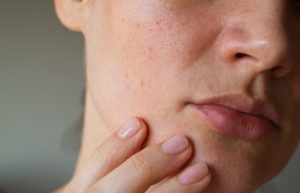Why Intermittent Fasting Can Lead to Better Sleep
While its origins are ancient, intermittent fasting has grown increasingly popular in recent years. Intermittent fasting offers a range of benefits, from weight loss to improved cognitive performance. It can also lead to better quality sleep.
What Is Intermittent Fasting?
Intermittent fasting is the practice of restricting your eating to specific times of day , and fasting or not eating for the rest of the day. Commonly, people will choose to restrict their eating to an eight, 10, or 12-hour period of the day, and fast the remainder of the time. For example, some people follow a 16:8 schedule, in which they only eat during an eight-hour period, such as from noon to 8 p.m., and fast the remaining 16 hours of the day. Others may limit their caloric intake by 25% for two days of the week, then eat normally the remaining days, in what’s known as 5:2 fasting.
Intermittent fasting focuses on confining your eating times to a set schedule every day. This practice encourages your body to go into “fasting mode” and start converting your fat reserves into energy, which can lead to weight loss . With your digestive system taking a break, your body can instead focus on cellular repair and restoration.
The Origins of Fasting, and Its Newfound Popularity
Fasting isn’t a new phenomenon; in fact, it has been a common practice in many major religions throughout history. During Ramadan , Muslims fast from dawn to sunset, switching their eating and drinking to occur only during night hours. People who practice the Jewish religion engage in a 25-hour fast during Yom Kippur, and Christians fast during certain times of Lent.
The idea of fasting for better health has been around since the days of Hippocrates . Its newfound popularity in the past decade may be traced to a few notable advocates. In the early 2010s, British journalist Michael Mosley popularized the 5:2 fasting diet as the “Fast Diet” . In 2019, Twitter CEO Jack Dorsey made headlines when he announced he practices extreme intermittent fasting.
Thanks to this broad media coverage, intermittent fasting has become popular as an effective weight loss strategy. Rates of obesity have grown quickly in Western societies, particularly the United States, where more than two in three adults are now considered overweight or obese. Obesity poses serious health consequences, such as increased risk of diabetes, cardiovascular disease, and cancer. Weight loss strategies, including intermittent fasting, may be a solution to this problem.

What Are the Health Benefits of Fasting?
Research suggests intermittent fasting poses several benefits, including:
- Weight loss
- Better metabolic health
- Reduced inflammation
- Improved immune function
- Lower cholesterol
- Protection against neurodegenerative disorders
- Better cognitive performance
- Better mood
- Delayed aging
- Better sleep
How Does Intermittent Fasting Affect Sleep?
Research suggests intermittent fasting may improve the quality of your sleep by reinforcing your circadian rhythms . Your circadian rhythms manage a host of biological functions, from your appetite and metabolism to your sleep-wake cycle. Your circadian rhythm primarily relies on sunlight to regulate these functions, but food is a powerful secondary circadian zeitgeber, or “time cue” . Following set meal times, as one does during fasting, can help reinforce your natural circadian rhythms.
People who practice intermittent fasting also have higher levels of human growth hormone . Produced during sleep, this hormone burns fat, restores muscles, and helps the body repair itself at a cellular level. As a result, people who fast may wake up feeling more refreshed and restored after sleeping.
People engaged in intermittent fasting may also notice they have more energy and focus. Fasting increases production of orexin-A, a neurotransmitter tied to alertness. Specifically, people who fast have lower orexin-A levels at night, and higher levels in the daytime, so they feel more alert during the day and enjoy more restful sleep.
The positive effects of intermittent fasting on sleep can appear in as little as one week. In one study of healthy adults, participants found that their sleep quality improved on several levels after a week of intermittent fasting. They were less likely to wake up during the night, and they moved less as they slept, so their sleep was more restful. They also spent more time in rapid eye movement (REM) sleep, a stage of sleep responsible for emotional and mental processing. Overall, they reported better sleep quality, better mood, and better focus during the day.
Intermittent Fasting and Insomnia
While intermittent fasting appears to improve sleep quality, it could also lead to sleep issues depending on the timing of your meals. When people eat at irregular times, it can disrupt their sleep. This is especially true if they eat late at night, which can raise the body’s temperature, which is the opposite of what typically occurs during sleep. Heavy meals too close to bedtime might upset your stomach and make it hard to fall asleep, disrupting sleep quality and affecting how refreshed you feel upon waking up.
For example, Ramadan fasting, in which you fast during the day and eat at night, follows an eating pattern that conflicts with the body’s natural circadian rhythms. This conflict may lead to lower levels of melatonin , which is a sleep hormone, and less time spent in REM sleep.
Tips for Better Sleep While Fasting
Sticking to a consistent eating schedule may improve the quality of your sleep. Incorporating a few healthy sleep tips may help you sleep even better while fasting.
Don’t Go to Bed Too Hungry
Relaxing into sleep might be more difficult if your stomach is grumbling. When you’re hungry, your levels of cortisol — a stress hormone — rise, which can diminish your sleep quality.
Aim to schedule your last meal at least three hours before bed . This way, your digestion won’t disturb your sleep, but you won’t go to bed starving, either.
Stay Hydrated
Going to bed dehydrated can lead to shorter or lower-quality sleep . Drinking more water during the day may reduce your hunger cravings , while also making it easier to sleep at night.
Be careful with your caffeine and alcohol consumption, too. Caffeine may decrease your appetite, but it disrupts your sleep. Alcohol also disrupts sleep, in addition to negatively impacting your metabolism and causing nutritional deficiency .
Choose Healthy Foods
Try to avoid foods high in sugar and empty calories like junk foods. If you stick to healthy, nutrient-rich foods, you’ll find it easier to stick to your intermittent fasting schedule. Opt for whole foods, fruits, vegetables, and healthy proteins and fats. As a bonus, the foods that are good for your diet are good for your sleep, too.
Figure Out What Works for You
As with any change in routine, it takes a few days to adjust to intermittent fasting. Allow yourself some flexibility as you figure out a schedule that works for you. Fasting for eight hours might be easier than 12, or you may prefer to lower your caloric intake a few days of the week. Be kind to yourself and do what works for you.
By eating on a regular schedule, you may find yourself sleeping on a regular schedule more easily. Consult your doctor before beginning an intermittent fasting practice, especially if you are pregnant or have a health condition.

Still have questions? Ask our community!
Join our Sleep Care Community — a trusted hub of sleep health professionals, product specialists, and people just like you. Whether you need expert sleep advice for your insomnia or you’re searching for the perfect mattress, we’ve got you covered. Get personalized guidance from the experts who know sleep best.
References
17 Sources
-
Almeneessier, A. S., & BaHammam, A. S. (2018). How does diurnal intermittent fasting impact sleep, daytime sleepiness, and markers of the biological clock? Current insights. Nature and Science of Sleep, 10, 439–452.
https://pubmed.ncbi.nlm.nih.gov/30573998/ -
Mendoza, J., Drevet, K., Pévet, P., & Challet, E. (2008). Daily meal timing is not necessary for resetting the main circadian clock by calorie restriction. Journal of Neuroendocrinology, 20(2), 251–260.
https://pubmed.ncbi.nlm.nih.gov/18088363/ -
Bahammam, A. S., Almushailhi, K., Pandi-Perumal, S. R., & Sharif, M. M. (2014). Intermittent fasting during Ramadan: Does it affect sleep?. Journal of Sleep Research, 23(1), 35–43.
https://pubmed.ncbi.nlm.nih.gov/23937329/ -
Phillips, M. C. L. (2019). Fasting as a therapy in neurological disease. Nutrients, 11(10), 2501
https://pubmed.ncbi.nlm.nih.gov/31627405/ -
Conlin, J. (2013, March 10). England develops a voracious appetite for a new diet. The New York Times.
https://www.nytimes.com/2013/03/03/fashion/england-develops-a-voracious-appetite-for-a-new-diet.html -
Clifford, C. (2019, April 9). Billionaire Jack Dorsey’s 11 “wellness” habits: From no food all weekend to ice baths. CNBC.
https://www.cnbc.com/2019/04/08/twitter-and-square-ceo-jack-dorsey-on-his-personal-wellness-habits.html -
Longo, V. D., & Panda, S (2016). Fasting, circadian rhythms, and time-restricted feeding in healthy lifespan. Cell Metabolism, 23(6), 1048-1059.
https://pubmed.ncbi.nlm.nih.gov/27304506/ -
Almeneessier, A. S., Alzoghaibi, M., BaHammam, A. A., Ibrahim, M. G., Olaish, A. H., Nashwan, S. Z., & BaHammam, A. S. (2018). The effects of diurnal intermittent fasting on the wake-promoting neurotransmitter orexin-A. Annals of Thoracic Medicine, 13(1), 48–54.
https://pubmed.ncbi.nlm.nih.gov/29387256/ -
Lewis, P., Oster, H., Korf, H. W., Foster, R. G., & Erren, T. C. (2020). Food as a circadian time cue – Evidence from human studies. Nature Reviews. Endocrinology, 16(4), 213–223.
https://pubmed.ncbi.nlm.nih.gov/32055029/ -
Ho, K. Y., Veldhuis, J. D., Johnson, M. L., Furlanetto, R., Evans, W. S., Alberti, K. G., & Thorner, M. O. (1988). Fasting enhances growth hormone secretion and amplifies the complex rhythms of growth hormone secretion in man. The Journal of Clinical Investigation, 81(4), 968–975.
https://pubmed.ncbi.nlm.nih.gov/3127426/ -
Almeneessier, A. S., Bahammam, A. S., Sharif, M. M., Bahammam, S. A., Nashwan, S. Z., Pandi Perumal, S. R., Cardinali, D. P., & Alzoghaibi, M. (2017). The influence of intermittent fasting on the circadian pattern of melatonin while controlling for caloric intake, energy expenditure, light exposure, and sleep schedules: A preliminary report. Annals of Thoracic Medicine, 12(3), 183–190.
https://pubmed.ncbi.nlm.nih.gov/28808490/ -
A.D.A.M. Medical Encyclopedia [Internet]. Atlanta (GA): A.D.A.M., Inc.; c1997-2019. Gastroesophageal reflux disease., Retrieved May 17, 2021, from
https://medlineplus.gov/ency/article/000265.htm -
Rosinger, A. Y., Chang, A. M., Buxton, O. M., Li, J., Wu, S., & Gao, X. (2019). Short sleep duration is associated with inadequate hydration: Cross-cultural evidence from US and Chinese adults. Sleep, 42(2).
https://pubmed.ncbi.nlm.nih.gov/30395316/ -
McKay, N. J., Belous, I. V., & Temple, J. L. (2018). Increasing water intake influences hunger and food preference, but does not reliably suppress energy intake in adults. Physiology & Behavior, 194, 15–22.
https://pubmed.ncbi.nlm.nih.gov/29678599/ -
A.D.A.M. Medical Encyclopedia. (2019, April 30). Caffeine in the diet. MedlinePlus., Retrieved May 17, 2021, from
https://medlineplus.gov/ency/article/002445.htm -
Stein, M. D., & Friedmann, P. D. (2006). Disturbed sleep and its relationship to alcohol use. Substance Abuse, 26(1), 1–13.
https://pubmed.ncbi.nlm.nih.gov/16492658/ -
A.D.A.M. Medical Encyclopedia. (2020, May 10). Substance use recovery and diet. MedlinePlus., Retrieved May 17, 2021, from
https://medlineplus.gov/ency/article/002149.htm
































































